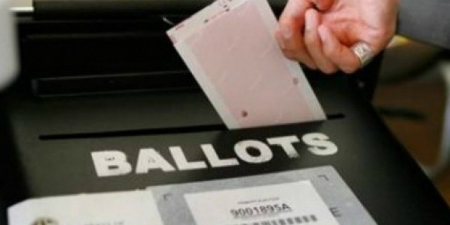
It’s not like the issue of modern voter suppression hadn’t been on the political radar until 2012. Signs of a war brewing over Voter ID laws were seen as far back as before the election of then Candidate Barack Obama in 2008. Hoosier State Indiana’s infamous Photo ID law trekked its way to the Supreme Court, barely noticed by even the most scrutinizing politicos. At the time, euphoria over the election of the first Black president caused folks to slip into a “post-racial” snooze. The African American political establishment made little fuss about it at the time, preoccupied with the recession and an evaporating Black middle class; only civil rights lawyers on the fringes were paying any real attention. In the meantime, Republican operatives were sharpening knives and constructing an electoral hit-job of redistricting schemes, shadow monies and a complex web of Voter ID laws.
There are significant problems on both sides of this debate that most won’t discuss until well after the election. That depends on the outcome. Everyone on the left will point fingers at it if the incumbent President Obama loses, since it is estimated some 5 million Democratic base voters will be impacted by the patchwork of what is described as sinister voter suppression laws in nearly 20 states, many of them key battleground states in the election. But, if he wins, the right will go about its business imploding and hobbling together a list of likelies for 2016 while the left will merely wipe its forehead with “dodged-that-bullet” relief.
Comically, Politico’s Emily Schultheis recently described the pattern of voter suppression efforts an “unprecedented flurry of new laws.” That attitude is what’s making the counter-effort too little, too late.
First: voter suppression is built into the American political fabric, a practice as familiar as fireworks, baseball games and hot dog stands. Let’s not act new on this as if, suddenly, American politics woke up one morning with a sinister grin on its face. This is something that has hampered voters of color for quite some time – in fact, since the writing of the Constitution. To call it “unprecedented” assumes it really is when it’s not.
Secondly: the sudden mass crying-foul movement of loosely affiliated progressive groups is all Johnny and Jenny come lately. The Democratic Party establishment is just as guilty for initially dismissing it and now scrambling to avoid what will amount to an election sucker punch; the president’s re-election team, so unbelievably skittish on keeping him from looking “too Black” didn’t want him near it – but, when they finally get it, they’re all late to the game.
Because organizations such as the NAACP and others take political lead from Democrats (let’s not front on this), the rapid response is dishearteningly lacking. While the urgency might be there (like a rushed “oh s*$!”), no one has successfully explained exactly what’s going on to the very people who will be impacted: Why is this important? What’s the real world impact? The conversation is too high level and too esoteric for the consumption of average folks on the streets who could ultimately show up at the polls on November 6th and find themselves being turned away or in long lines behind irate voters taking on polling judges.
Lastly, the voter suppression conversation – whether you are on the left side or right side of the fence – misses a larger point. Our “democracy” is fundamentally flawed and we need to seriously stop, take stock of the political process in front of us and figure out how to fix it before we end up in a bad place. Proof of this is the very fact that we’re even having a debate about voter suppression. The deep, intrinsic flaws are what brought us to this point where we could be faced with potential social unrest should millions find themselves strafed by an electoral sneak attack. Why are so few voting? And why haven’t we developed a uniform, national standard for voting in place of the current 50-state (plus territories) patchwork of election laws. Yes, Republicans are playing with fire in a time of great economic distress. But, perhaps we should take advantage of the crisis to focus on what’s wrong in the first place, from the low voter turnout to the perception of a rigged political machine.